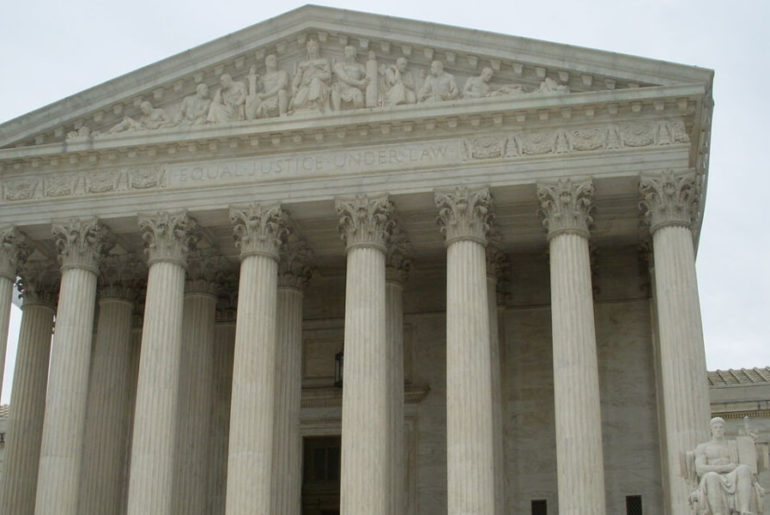Freedom of speech might be soon put on trial. The Supreme Court has agreed to review the case of United States v. Sineneng-Smith, a case that concerns a little-used provision of immigration law that punishes those who “encourage or induce an alien to (…) reside in the United States” when the encourager knows that person has no legal status.
The discussion arose after immigration consultant Evelyn Sineneng-Smith told her undocumented clients they could stay in the United States under a program she knew had ended. The government convicted her for fraud, however, she was also convicted on the encouragement provision, which opens up a larger conversation about the criminalization of any pro-immigration speech.
“An advocate or lawyer now has to worry, given the government’s position in this case, that this language … may trigger criminal liability just for correctly advising a noncitizen,” Manny Vargas, senior counsel for the nonprofit Immigrant Defense Project in New York City, told Slate.
The ruling was overturned in the Ninth Circuit, stating that the decision criminalizes a large amount of constitutionally protected expression and that it is “unconstitutionally overbroad in violation of the First Amendment.”
Judge A. Wallace Tashima, writing for a three-judge majority, also pointed out in 42-page ruling that, given the wrong interpretation, the provision could get a social media user who encourages illegal immigrants to stay in the country in trouble or might even affect a lawyer trying to help their clients with their immigration status inside of the United States. However, in the bigger picture, those things could not be considered incitement because there is no imminent breach of peace.
“It is pure advocacy on a hotly debated issue in our society,” wrote Tashima. “Such speech on public issues occupies the highest rung of the hierarchy of First Amendment values, and is entitled to special protection.”
Nonetheless, the government has petitioned the Supreme Court for review, arguing the 9th Circuit “invalidated an Act of Congress on its face.” The appeal alone makes some advocates nervous.
“The fact that the U.S. is looking to get the Supreme Court to reverse the lower court’s finding … is an indication that the government wants to use this provision,” Vargas said.
The appeal is now pending adjudication before the U.S. Supreme Court.

